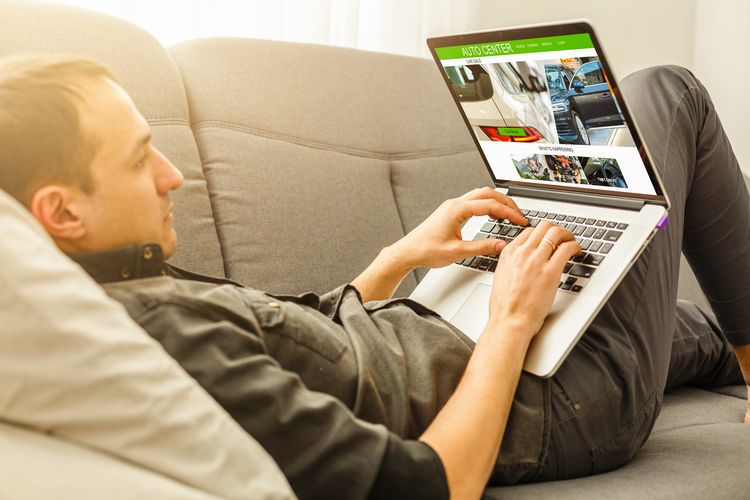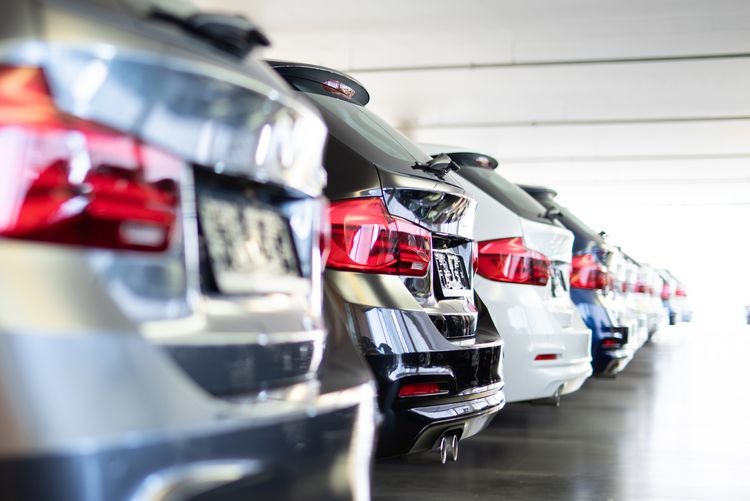What You Need To Do Before Buying A Used Car
Whether it’s called a “used car” or a “pre-owned car” the upshot is the same: Someone else has previously owned, driven, and taken care of (maybe) the car that you’re considering buying. Going the used route instead of opting for a brand-spanking new car has its advantages and disadvantages. But armed with the right information, and bolstered by a blend of patience and perseverance, you can land a great car deal – not to mention a great deal of peace of mind.

The Key Is To Do Your Research
Knowledge is power, and it can take your car search down roads you may not have even considered. Tools such as CarGurus CarFinder can help by providing you with objective information and analysis that can lead you to the car that best suits your budget and your lifestyle. Additionally, CarGurus research pages offer test drive reviews of best-selling cars, and the questions page allows you to see if any major mechanical problems have been routinely reported in the model you’re considering buying.
If you decide to buy a used car from a dealership rather than from a private party, you’ll have the option of purchasing a Certified Pre-Owned (CPO) vehicle. While CPO programs vary depending on the manufacturer, they all offer a warranty. Keep in mind that CPO vehicles usually have a higher value than non-CPO vehicles.

Start With A Budget
Before buying a car, consider the three critical elements of a sound car budget: down payment, interest rate, and monthly payments. While monthly payments should be a primary consideration, and one that you’ll most likely spend a fair amount of time negotiating at the dealership, you’ll want to start the buying process by first taking into consideration the maximum purchase price of your new car.
On average, car buyers are expected to put down a minimum of 10% of the car’s purchase price as a down payment. Think of it this way: The more money you put down, the less money you’ll end up paying on loan interest if you’re financing the car.
When it comes to a car payment, financial experts generally suggest that you don’t spend more than 20% of your monthly take-home pay on a car payment. Online auto loan calculators are easy to use and can provide you with an accurate assessment of how much your car payment will be after you’ve figured out the price of the car, the loan terms, and the sales tax.

Stop And Go
Take some time to think about what type of your car you’re interested in, including make, model, color, body styling, interior and exterior options, and more. With a budget in mind and your recently acquired wealth of knowledge, it’s time to find the right car for you. Used car search engines, like the one offered by CarGurus, allow you to quickly and easily find the specific type of car you’re looking for in your area.
Once you’re at the dealership, request a vehicle history report such as those provided by AutoCheck or CarFax. It’s also a good idea to ask the dealer if you can take the car to an independent mechanic for an inspection; it’s not uncommon for a dealer to request a deposit before allowing you to take the car off the lot. Word of warning: If the dealer refuses your car inspection request, it could be a red flag that something is wrong with the vehicle, and you might want to move on to another car – or another dealership.
Before you head out from the car lot and hit the road for a test drive, take a walk around the vehicle and do an exterior vehicle inspection. Observe whether there are any dents, scratches, or chips; check out the condition of the tires; and look closely for any windshield cracks.
Once you’re ready to take a car for a test drive, you might want to make a mental list of things you want to check such as ease of using the car’s controls, seat positions, how the car handles on the highway or in stop-and-go traffic, braking, accelerating, and overall comfort factor. Pay attention also to any oil or gasoline odors that you notice while you’re driving, as they could indicate an engine problem.

Gear Up For A Purchase
Everything seems to be a go: You’ve done your due diligence, you’ve found the car of your dreams, and maybe you’ve even secured pre-approval in terms of financing. Now it’s time to sit down with the dealer and hash out the purchase details.
When making an offer on a car, let the dealer know that you’ve conducted research and you’re well aware of what would be considered the best price for the particular vehicle you’re interested in. It’s worth noting that car dealers look to make money on more than just the sale price of a car, so you’re willingness to spring for options like rustproofing and floor mats could serve to encourage the dealer to consider a lower overall purchase price.
Taxes and fees will be added to the car’s final sales price, even if these additional costs were not indicated in the advertised price. But don’t fret: Taxes and fees aren’t some type of dealership ploy to wrangle more money from your wallet. They’re part of the routine costs of buying a car, and as such shouldn’t be treated as a bump in the car buying road.
